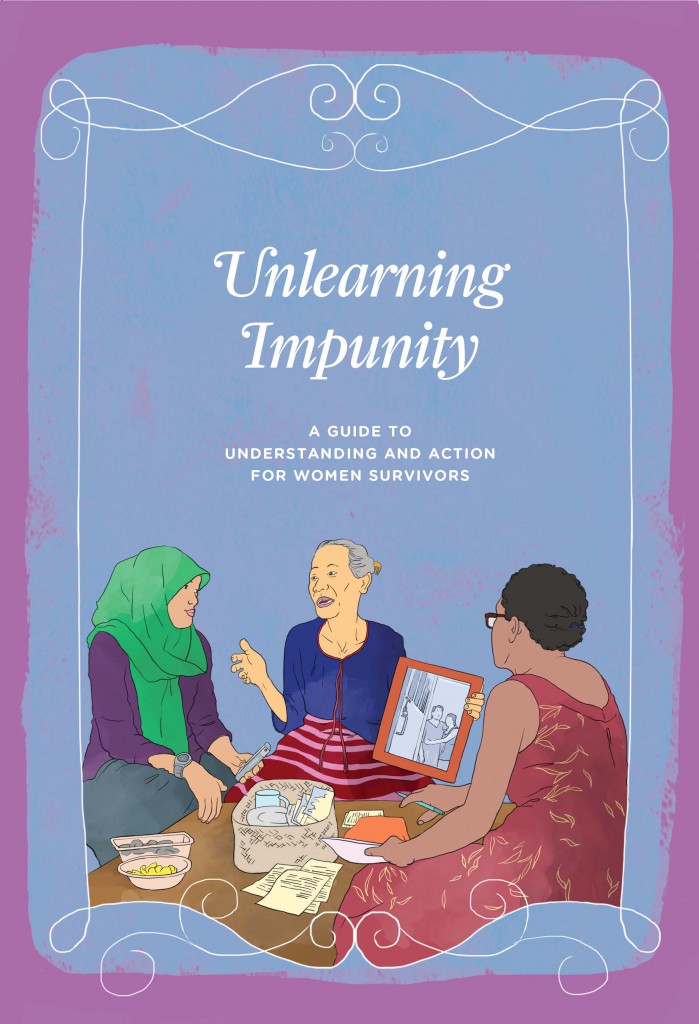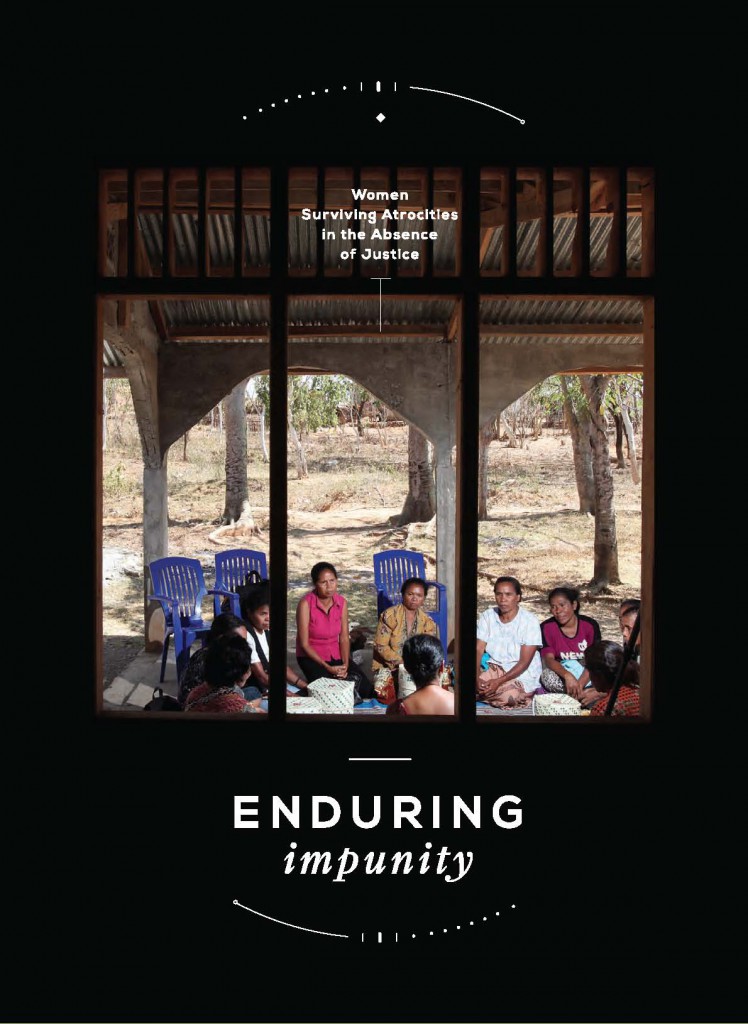Dialogue Fora
A Short Video of Women Peace Table in Ambon, Indonesia
Filmed by PWAG Indonesia
Unlearning Impunity: A Guide to Understanding and Action for Women Survivors
Published by Asia Justice and Rights
This manual is a companion book of AJAR’s series of final report on gender justice research. It explains a variety of methods we used to document women’s stories, demonstration of community-based healing methods, and discussion of ways to develop advocacy initiatives at a local level.
This manual offers a process that encourages women to “unlearn” those norms and resist the many ways used to maintain impunity. The exercises and ideas behind them move us in the direction of greater balance between individual and community experiences, between attention to civil-political and economic-social rights, and between women’s experiences of violence during and after conflict. We also seek to balance attention given to healing, empowerment, and advocacy at both individual and community levels.
Research methods in this manual were developed together by all field researchers of gender justice research. In Indonesia: Jaringan Perempuan Indonesia Timur (JPIT), Kiprah Perempuan (KIPPER), Lingkar Pemberdayaan Perempuan (LAPPAN), Women’s Legal Aid (LBH Apik) Aceh, and Lembaga Studi dan Advokasi HAM (ELSHAM Papua). In Timor-Leste: Assosiasaun Chega Ba Ita (ACbit). In Myanmar: Women’s Organizations Network (WON), Kachin Women Association Thailand (KWAT) and Karen Women Empowerment Group (KWEG).
Enduring Impunity: Women Surviving Atrocities in the Absence of Justice
Published by Asia Justice and Rights
This book captures the images and voices of 140 women survivors of torture and other forms of violence from Indonesia, Timor-Leste and Myanmar. Based on participatory action research with women survivors, “Enduring Impunity” presents a new approach and knowledge on how women experience impunity in conflict and post-conflict settings in Southeast Asia.
This research was carried out by AJAR, together with women’s organisations in three countries. In Indonesia: Jaringan Perempuan Indonesia Timur (JPIT), Kiprah Perempuan (KIPPER), Lingkar Pemberdayaan Perempuan (LAPPAN), Women’s Legal Aid (LBH Apik) Aceh, and Lembaga Studi dan Advokasi HAM (ELSHAM Papua). In Timor-Leste: Assosiasaun Chega Ba Ita (ACbit). In Myanmar: Women’s Organizations Network (WON), Kachin Women Association Thailand (KWAT) and Karen Women Empowerment Group (KWEG).
Download PDF (English version)
MASIH ADA ASA (Memory and Hope) Documentary
Presented by PWAG Indonesia
This documentary, presented by PeaceWomen Across the Global Indonesia(PWAG Indonesia), is about the story of how two Indonesia young women from Flores continue their life after being sexually assaulted.
Faiha Abdulhadi’s Article“In the time of “The Absurd”; Pens against Bullets!”
Faiha Abdulhadi’s article is to commemorate the victims of the attack of Charlie Hebdo magazine in Paris on 7 January, 2015. The Arabic version of this article was published on Al-Ayyam newspaper on 12 January 2015.
Read the English article here.


